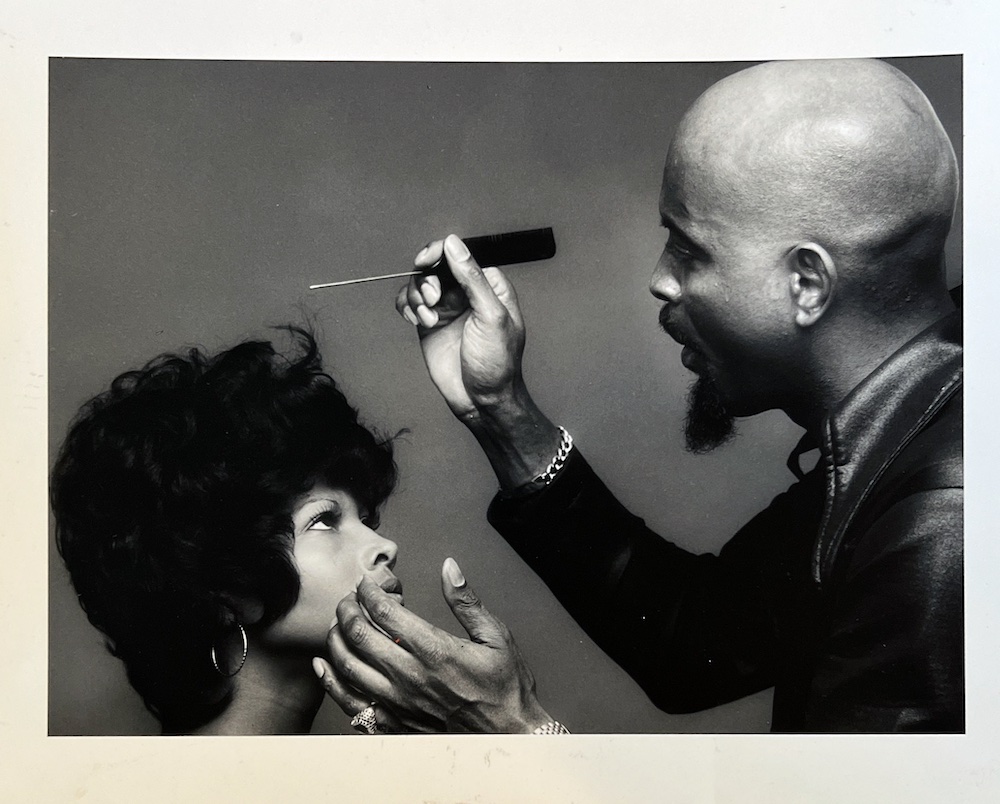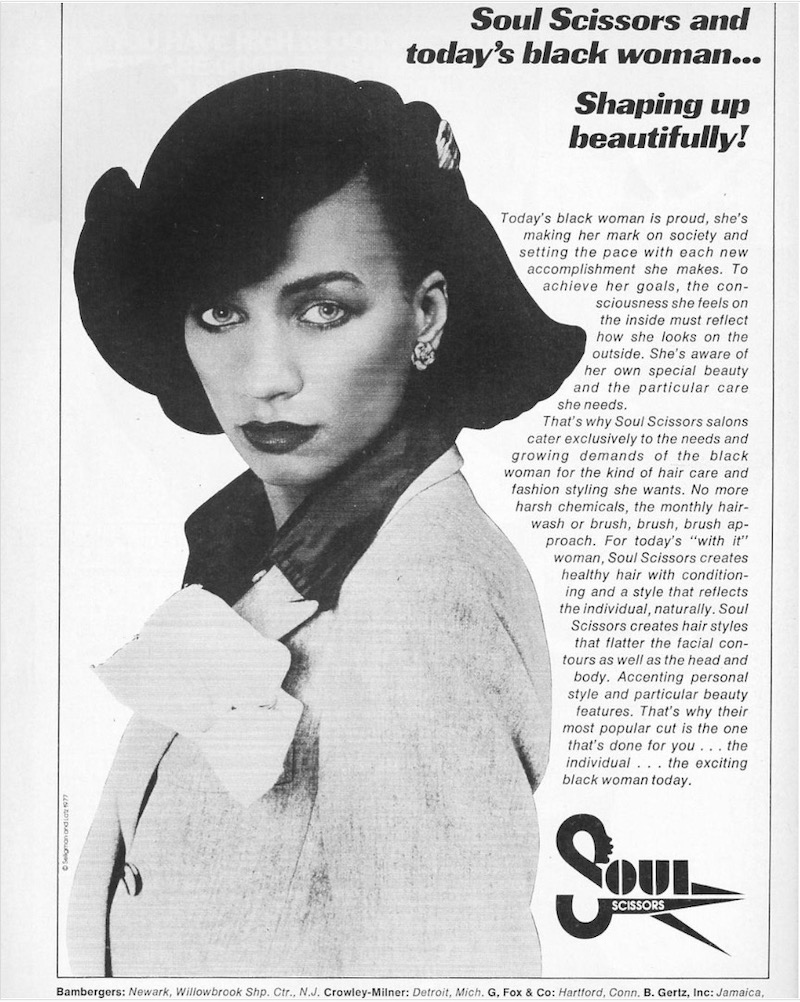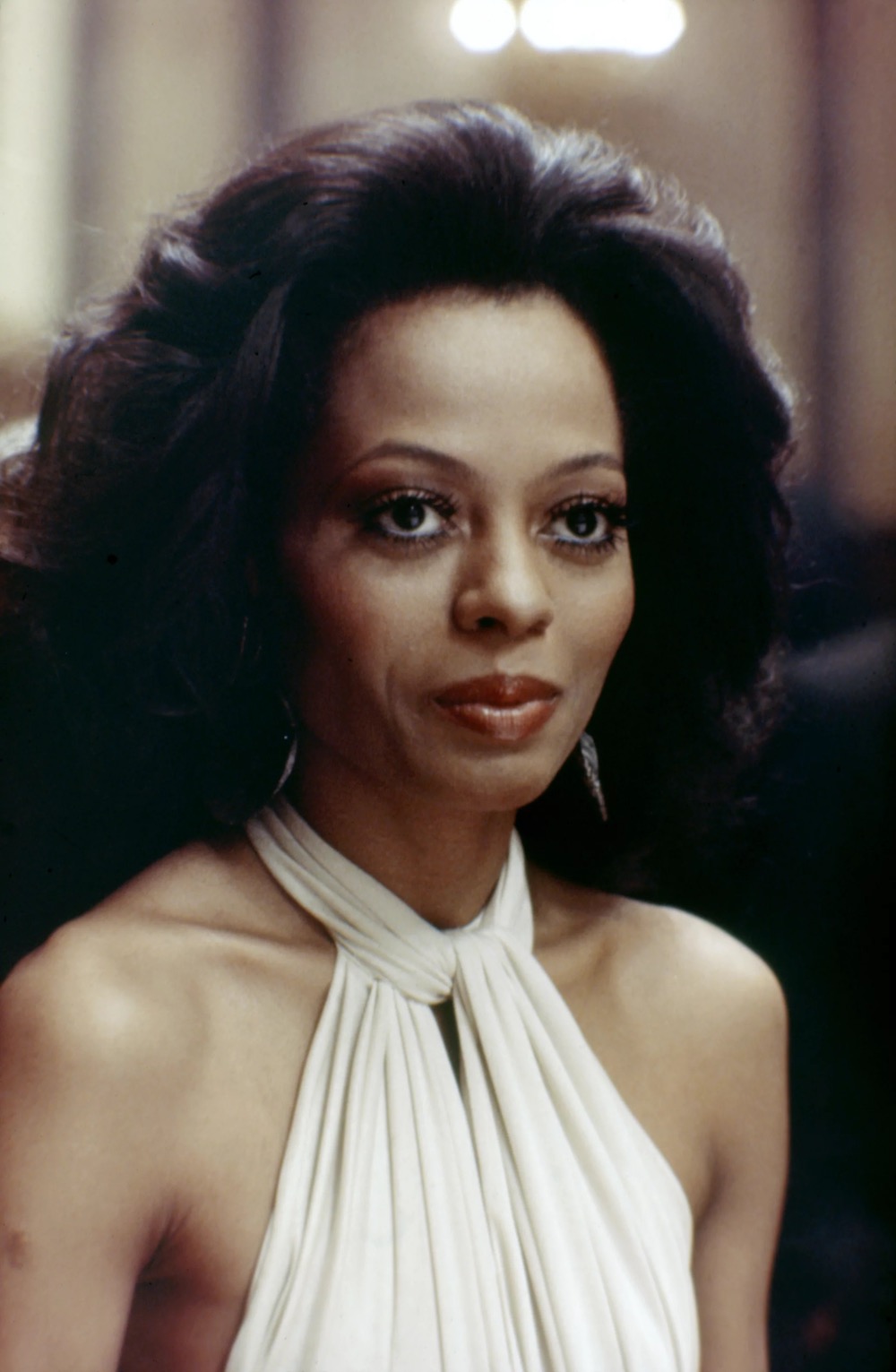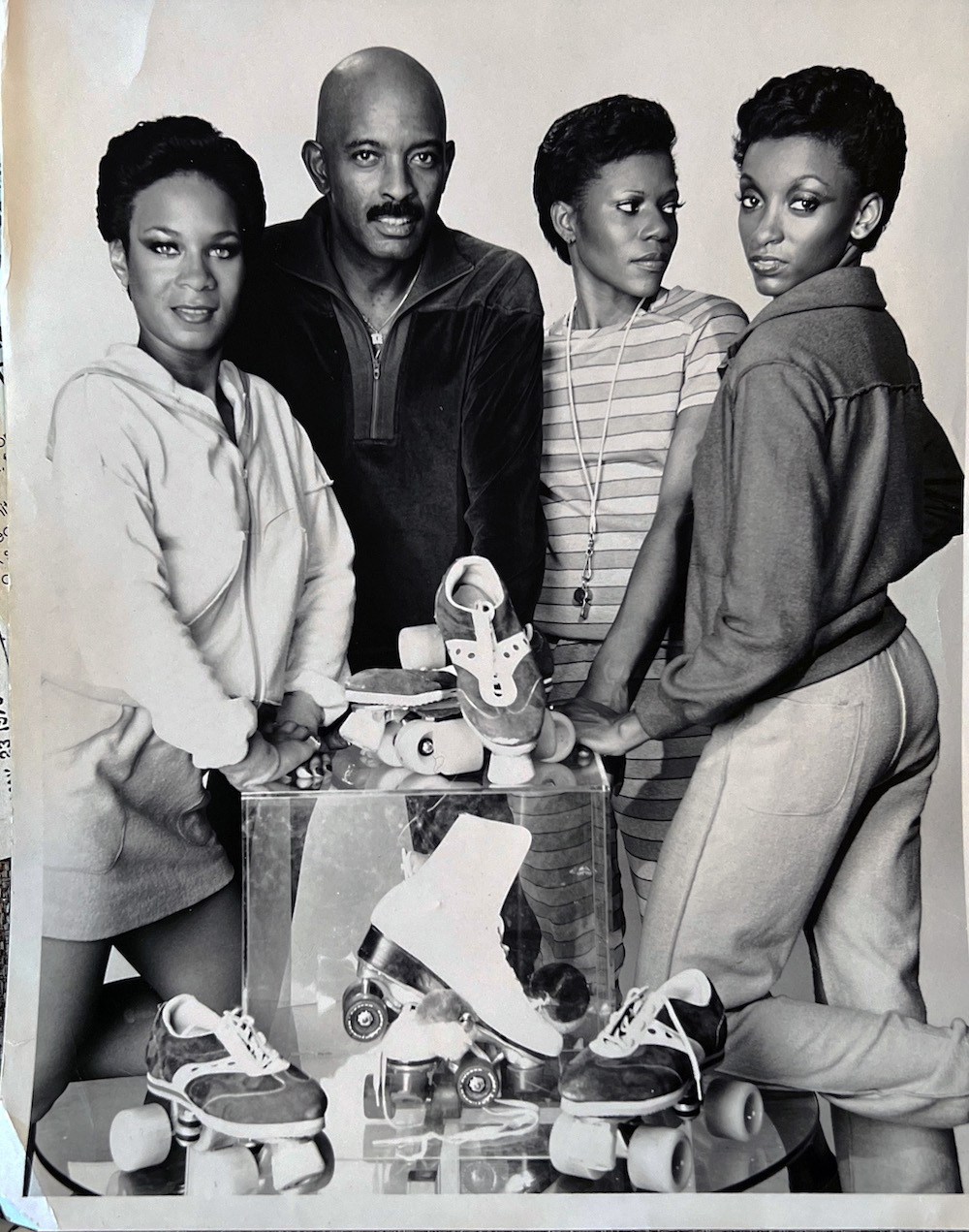SOUL SCISSORS
THE BLACK EXPERIENCE OF THE 1970'S AND THE LEGACY OF ART DYSON
Written by Kyle Edward Dyson
Art Dyson working his magic.
The year is 1975 and Mom and I are cruising down Crenshaw blvd, In a 70’s Nissan Datsun 240z, It’s another beautiful sunny California day. I shuffle through the radio gathering mostly static until suddenly it comes through loud and clear a seductive whisper of a voice speaks “Soulful, beautiful people everywhere, Soul Scissors cares for your beautiful
hair...” followed by a sound of aerosol hairspray. This was the radio advertisement for my grandfather's salon. This radio jingle wasn’t just an advertisement for the only nationally popular commercial businesses in the United States that catered to blacks, it was a call to prayer. Soul Scissors was the first chain of salons for black women, a palace to some, a church to others and for all, it was a safe place to be seen and understood. An environment that was created to celebrate the “Black is Beautiful” movement of the time.
Imagine entering a Macy’s department store at the time and upon walking in you witness a line of women in the queue. As you make your way to the back of that department store you discover the destination, a shop in shop experience. Disco played loudly on the radio, the smell of floral- scented hair spray and the faint sound of blow-dryers this was thee universe. If they heard the call on the radio as many did they ultimately waited in this line for hours. The experience was unique, A luxurious urban experience that when witnessed had you obsessed. An experience that was designed by Hairstylist & Entrepreneur Art Dyson. A figure with a no-nonsense personality, a distinguished sway of a walk, and a sense of style that was so fly it made the 1972 film Superfly feel respectfully off-brand. His style was so grandiose that men and women were in love or envious. He would prefer the ladder.
An early advertisement for Soul Scissors.
Before the influence of Soul Scissors, the trend was a natural look. Around 1974 a new look of beauty shook the mainstream for African American women and men. As liberating as the afro was and as free as it is, the time to add to the conversation of versatility had arrived. America needed to experience black women and Art understood the assignment. He and his team created new hairstyles, invented new tools, and introduced them to the public by creating “Themed Hair Shows” in each Soul Scissors salon. The style was one that naturally manipulates a black woman’s hair. As a result achieving a relaxed and blow-dry look that redefined the image of the era. The look that the likes of icons such as Donna Summer, Diahann Carroll, Mary Wilson, and Diana Ross loved.
Art was praised by many as the Vidal Sassoon for African American women. Under his direction, he grew Soul Scissors into a billion-dollar company and for the first time provided a place that did not exist for the black woman in the commercial market. Simultaneously while running the 50+ salon hair chain, Art was committed to his craft and did so by competing in hair competitions domestic and internationally. Recruiting a team of hairstylists and models all of which trained under his supervision to travel across the United States from Paris, Milan, London displaying the soul scissors look.
The look that the likes of icons such as Donna Summer, Diahann Carroll, Mary Wilson, and Diana Ross loved.
Diana Ross.
Art Dyson won countless awards, most notably grand prize at festival mondial de la coiffure in of 1978. His hair designs and unique presentations were forward and innovative. A vision to be seen, was to witness him in his tuxedo, golden manicured nails, bald head, diamond-encrusted cane, platform hills followed by his equally eccentric and effeminate hairstylists that walkout from the plane and onto a stage with beautifully coiffed models perfectly styled to perfection. This was the brand he created and lived by.
Born in Harlem in 1948, at the end of the Harlem Renaissance, Art was an African American man who was raised on Nantucket Island. He spent his young adult life in pursuit of direction. When suddenly discovering his creative calling he quickly willed it into realization, he shaped a community that was not seen by corporations and businesses at the time and made it one. I never considered my grandfather an activist until now, suffice it to say that through his birthing of Soul Scissors and its 50+ year legacy he will be remembered as a capitalist activist of his time. This is the house that Art built.
Art Dyson with Models.
CREDITS
Written by Kyle Edward Dyson
Notable Mentions:
https://www.latimes.com/archives/la-xpm-2004-mar-01-me-dyson1-story.html
https://www.theatlantic.com/culture/archive/2022/03/black-hair-and-revolution-soul- scissors/622952/
Sky Blue
Est. 2019



